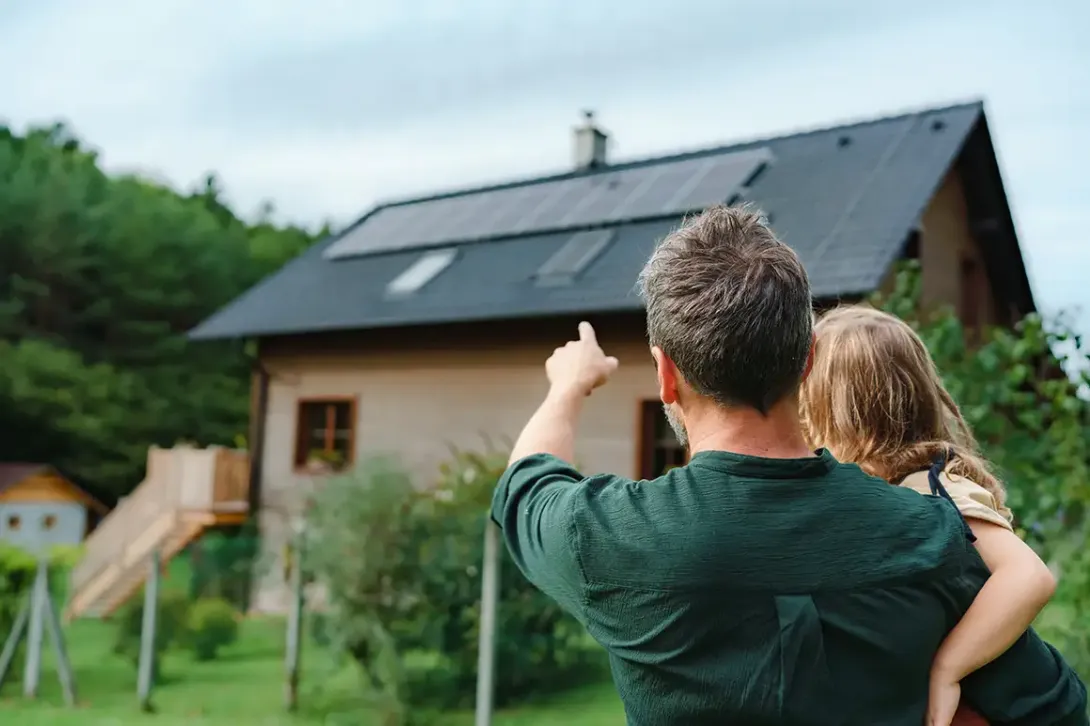
Is installing solar panels at home a good investment?
The trend towards a more sustainable energy production has triggered interest in the installation of solar panels, that can be a wise investment in the long run.
On 16 April this year, Spain achieved a historic milestone: more than 100% of national electricity demand was covered by renewable sources. This historic feat was, however, not a one-off event, but rather the result of a trend that has recently been building up over a number of years.
Although for a long time the focus on nuclear energy has sidelined the potential of other more sustainable sources of energy, in recent years this trend has been reversed. In 2024, 74% of the energy produced in Europe came from renewable sources, 8% more than the previous year. In Spain, in that same year, energy from renewable sources reached 56%.
Solar electrical self-consumption: an increasingly affordable investment
Seeing these data, the fact that interest in energy self-consumption has grown exponentially in recent years makes sense. In addition to the quest for more sustainable sources, there is also the reduction in the price of electricity.
For all these reasons, it is logical to conclude that the moment for electrical self-consumption of electricity has finally arrived. And, among the range of available renewable energy sources, photovoltaic solar energy is undoubtedly the star of the show. With an average of 2,500 hours of sunshine per year, Spain is a paradise for solar energy. A clean and efficient energy source, eternal and inexhaustible, that can be installed anywhere.
However, despite its substantial advantages, the initial installation cost of around 5,000 - 8,000 euros may put off many potential users. However, this amount can be reduced through subsidies and tax deductions available at both the regional and national levels. For example, the European Union's Next Generation programme offers grants covering up to 40% of the cost, and some Spanish autonomous communities offer additional deductions on property or construction taxes.
Depending on energy consumption, location and roof conditions, the return period for this investment could be between 2 and 7 years. A standard installation can cover 60-80% of annual electricity consumption. And if a battery is added, it is possible to make the most of the available energy even at night. Solar panels can lead to savings on electricity bills of between 30 and 60%, which implies estimated total annual savings of between 300 and 700 euros.
Sustainability and long-term savings
But beyond the financial savings, installing solar panels also provides several additional benefits that make this decision much more attractive. By not producing polluting emissions, solar energy significantly reduces CO2 emissions. Installing solar panels therefore contributes to living and consuming more sustainably, reducing one’s carbon footprint and helping to care for the environment.
On the other hand, although the initial cost of installing solar panels may be high, their lifespan can extend to up to 25 years, making them a very sound long-term investment. In addition, the design of such panels is intended to withstand adverse weather conditions. Therefore, with only periodic cleaning, their operation can be extended over decades with minimal maintenance. Furthermore, the installation of solar panels also increases the resale value of a home, as energy self-sufficiency is a highly appreciated element in the real estate market. Thus, the installation of solar panels adds to the value of a property as an asset.
Ultimately, the use of renewable energy sources is a current reality, and no longer just a matter for the future. Therefore, joining the bandwagon of electricity self-consumption by installing solar panels is a forward-looking investment that provides benefits both economically and for the health of the planet.




